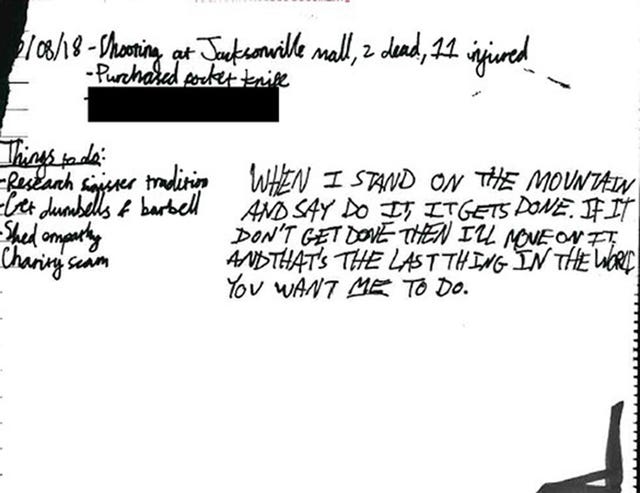
A teenage neo-Nazi who ignored police warnings about his racist tweets and went on to plan a terrorist attack has been jailed for six years and eight months.
The 17-year-old boy, who cannot be named for legal reasons, was interviewed under caution over a number of homophobic and racist comments made from his Twitter alias account.
The youngster from Durham, then a schoolboy, told officers in September 2017 that he only posted the tweets “for a laugh” and later voluntarily agreed to take part in the Prevent counter-terror programme but dropped out.

He continued searching for and downloading extremist far-right material online up until his arrest at his family home last March.
Police discovered a collection of far-right literature and various handwritten documents included a drafted manifesto which listed “Areas to Attack” in Durham such as schools, pubs and council buildings.
He also wrote of planning to conduct an arson spree with Molotov cocktails on local synagogues.
Analysis of his computer devices and mobile phone uncovered numerous internet searches on firearms, explosives and knives.

Manchester Crown Court heard that by December 2018 he had joined an extreme right-wing website forum, said to be an online meeting ground for fascists who wrote about “direct actions”.
On the first day he accessed the forum, the defendant downloaded a manual which contained a viable recipe for the highly explosive chemical ammonium nitrate, and later posted on the site a publication which contained instructions on the making of homemade firearms, ammunition and silencers.
Sentencing, the Recorder of Manchester, Judge David Stockdale QC, said those instructions to a specific targeted group had the potential to endanger lives.
He told the youth: “You were defiant in not only ignoring the police but in pursuing your obvious interest in ever more violent and extremist ideology.

“You did fail to respond to previous warnings of the police and the other agencies brought in to assist you. This was sustained conduct which would have continued but for your arrest.”
He went on: “You are a highly intelligent, widely read, quick-thinking and articulate young man. Given the development of your intellect, the breadth of your reading and your obvious thirst for knowledge, it is a matter of infinite regret that you pursued at such a young age a twisted and – many would say – a sick ideological path.”
The court heard that medical experts for the prosecution and defence agreed the teenager was suffering from an autism spectrum disorder and the judge found his condition did play some part in his offending.
One report concluded the youngster did not need deradicalising and any risk he presents could be dealt with by the teaching of coping mechanisms for his disability.
Judge Stockdale said he had received a letter on Tuesday from the defendant in which he expressed remorse and a clear wish to never reoffend.
He said he accepted its sincerity and said there was a prospect the teenager could put the offences behind him and lead a “constructive and worthwhile adult life”.

In November, jurors found him guilty of preparation of terrorist acts between October 2017 and March last year.
The youth was also unanimously found guilty of disseminating a terrorist publication, possessing an article for a purpose connected with terrorism and three counts of possessing a document or record containing information likely to be useful to a terrorist.
He will also serve an extended licence period of five years and will not be considered for release by the Parole Board until two-thirds of his sentence is complete.
Following sentencing, Detective Chief Superintendent Martin Snowden, head of Counter Terrorism Policing North East, said: “Prevent is the most important strategy we have to safeguard young people from radicalisation and it is always better reaching people before they’re drawn into criminal activity.
“Unfortunately, there are those who elect not to engage and refuse the support that is offered. In these cases, or where their behaviour has already gone too far, intervention may no longer be an option and we will take robust action.”


Comments: Our rules
We want our comments to be a lively and valuable part of our community - a place where readers can debate and engage with the most important local issues. The ability to comment on our stories is a privilege, not a right, however, and that privilege may be withdrawn if it is abused or misused.
Please report any comments that break our rules.
Read the rules hereComments are closed on this article